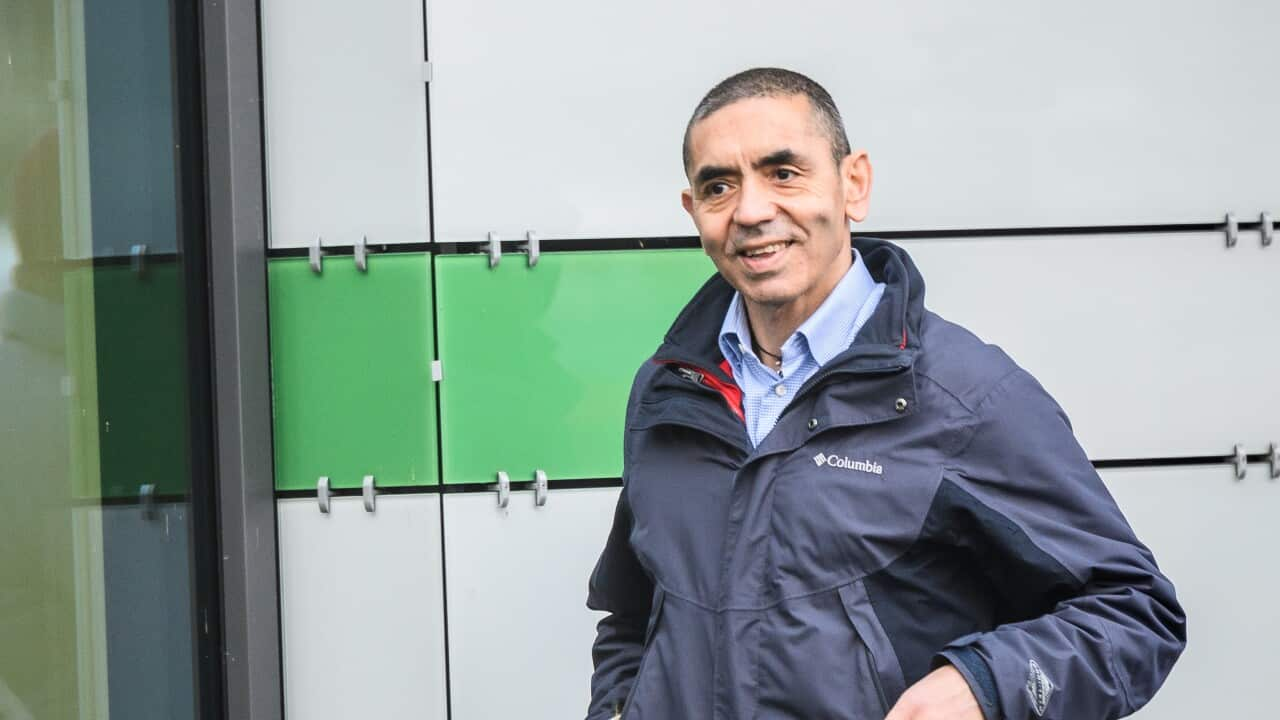Celebrating in their understated manner, BioNTech's founders knew it was too early to rest on their laurels.
"Champagne is not our thing. We sat down and enjoyed a cup of tea and used the time to reflect on what had happened so far and what will come next," Sahin told AFP.
Several hundred kilometres away in the German capital, 66-year-old Albrecht Broemme was placing a bunch of Lego figurines here and there as he visualised how to transform Berlin's old airports into centres for the unprecedented vaccination drive.
An ex-firefighter and former head of civil protection agency THW, Broemme had been called out of retirement to help in the pandemic battle.
Early on, he was pivotal in designing emergency sites in case patient numbers were to soar above hospital capacities.
In the autumn, he was tapped again to conceptualise the vaccination drive for the German capital.
"I came up with a system, thinking about how many (vaccination) booths we would need and how much space we would need in order to prevent bottlenecks," he said.
Each visitor will follow a designated route from registration to the actual jab, then on to a consultation with a doctor and finally to a waiting room while final checks are performed.
The patient should be in and out of the doctor's cubicle in a few minutes, Broemme said. Including the queueing and waiting time, "we imagine that all of this will take an hour."
1,100 questions
On December 2, BioNTech's vaccine became the first to get the go-ahead for use in the West, when Britain gave its approval.
As other nations from the United States to Saudi Arabia to Singapore followed suit, Germany impatiently prodded the EU's drugs regulator to bring forward its decision from December 29.
The EMA finally gave its green light more than a week early, on December 21.
On the same night, the European Commission declared that the entire bloc would start the inoculation operation from Sunday, December 27.
As vaccine doses began arriving around Europe Saturday, German Health Minister Jens Spahn called it a "day of hope" but warned that getting everyone immunised would be a "long-haul" effort.
With the first jabs imminent, officials raced to put the finishing touches on the makeshift inoculation centres across Germany.
At the country's biggest in Hamburg, doctors will be able to handle 7,000 daily jabs.
BioNTech has also held webinars for nurses and doctors who will soon administer the shot, with 1,100 questions answered during the sessions. Lorries carrying vaccines rolled out from Pfizer's factory in Belgium on Wednesday.
Lorries carrying vaccines rolled out from Pfizer's factory in Belgium on Wednesday.

The Pfiizer-BioNTech coronavirus vaccine. Source: Biontech
BioNTech said it would directly supply its vaccines to 25 distribution sites manned by federal authorities in Germany which would then send along the allocations to 294 districts.
Local authorities will then further funnel the jabs down to 450 vaccination centres.
A slew of mobile units will also be deployed to harder to reach districts.
With an eye on potential sabotage by a growing wave of corona skeptics and anti-vaxxers, federal police with armed commando units are escorting the precious cargo on the move.
First up will be the most vulnerable in elderly homes, several of which have been hit by deadly outbreaks of the virus. The inoculations could not come soon enough for Germany, which registered record high daily death tolls of nearly 1,000 people during the week. At least one district has reported that its crematorium is full.
The inoculations could not come soon enough for Germany, which registered record high daily death tolls of nearly 1,000 people during the week. At least one district has reported that its crematorium is full.

Doctor Bernhard Ellendt, right, injects the COVID-19 vaccine to nursing home resident Edith Kwoizalla, 101 years old, in Halberstadt, Germany. Source: AAP
With time pressing, one elderly care home went ahead with first vaccinations for its residents shortly after the doses were delivered on Saturday - a day ahead before the national inoculation campaign was due to start.
Edith Kwoizalla, 101 years old, became the first in Germany to receive the jab in the elderly home in Saxony-Anhalt state.
For Chancellor Angela Merkel, every jab means a life saved.
"When we see how many people are dying because of coronavirus, we can see how many lives the vaccine can save."











